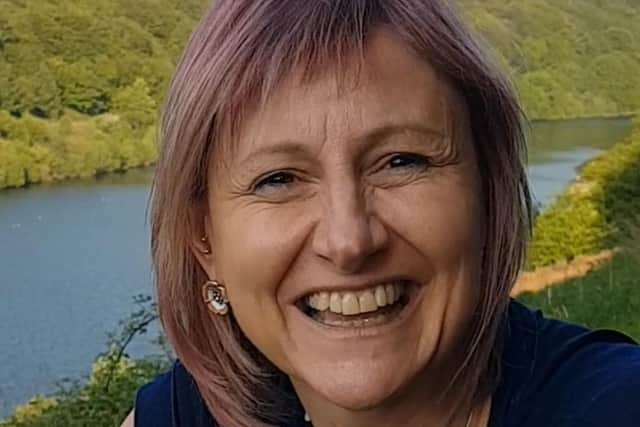'I can now contemplate a future without progressing disability' - How stem cell trial changed life of Yorkshire occupational therapist with MS
The mother-of-two had been suffering with vision and coordination problems and numbness in her left hand. She was told she had relapsing remitting MS, meaning she would have episodic periods of new or worsening symptoms that would come on without warning.
Over the next five years, the now 53-year-old, who lives in Flockton, West Yorkshire, tried various treatments for her MS, but she suffered repeated relapses and damaging spasms which would impair her walking and, at times, leave her unable to drive.
Advertisement
Hide AdAdvertisement
Hide Ad“The main issue for anybody with MS is the unpredictability of the condition,” says Colette, an occupational therapist from Rotherham. “It’s difficult to plan things ahead because your body really dictates whether you’re going to be able to do things or not that day or week. It adds a bit of apprehension to daily life.


“When you are experiencing relapse...you have some anxiety as to whether it is going to be a relapse you recover from, or if it is going to leave you with new symptoms which are going to be long-standing and impact on function and quality of life.”
Colette was left wondering how she would manage in the future if her condition deteriorated, whether she’d need a wheelchair or mobility scooter to be able to live and work.
In April 2016, however, she received an autologous stem cell transplant at Sheffield Teaching Hospitals NHS Foundation Trust as part of the landmark MIST trial. In the near-seven years since, Colette, who lectures at Sheffield Hallam University, has been free from relapses.
Advertisement
Hide AdAdvertisement
Hide Ad“For me to have the freedom of not worrying about whether my MS is going to be symptomatic has just been fantastic,” she says. “[The fact that] I have not experienced any relapses since the treatment continues to give me security and assurance that my condition is in a state of prolonged remission,” she adds.
Doctors and researchers at the Sheffield NHS trust and the University of Sheffield’s Clinical Trials Research Unit recently launched a world-first trial into stem cell transplantation in MS. The £2.3m StarMS study is investigating if transplantation should be used in patients with highly active multiple sclerosis failing drug treatment or as a first-line treatment for patients with the aggressive multiple sclerosis.
It is looking at how effective autologous hematopoietic stem cell transplantation (AHSCT) is when compared with four drug treatments (alemtuzumab, ocrelizumab, ofatumumab and cladribine), disease-modifying therapies which have shown that they can reduce MS activity and disability accumulation in clinical trials.
The trial, which is being funded through a National Institute for Health and Care Research (NIHR) and Medical Research Council (MRC) partnership, will build on the results of the MIST trial in which Colette took part. That was the first in the world to show that stem cell transplantation could reverse disability in patients with multiple sclerosis.
Advertisement
Hide AdAdvertisement
Hide AdThe trial will run across 19 UK sites including in Leeds and Sheffield. Each participant will be randomly selected to receive a stem cell transplant or one of the newest highly effective disease modifying therapies.
As for Colette, “I can now contemplate a future without progressing disability,” she says. “[The transplant] has improved my quality of my life, and I no longer live with the anxiety of waiting for the next episode of MS to take my independence away.”
For more information about the trial, visit www.star-ms.co.uk
